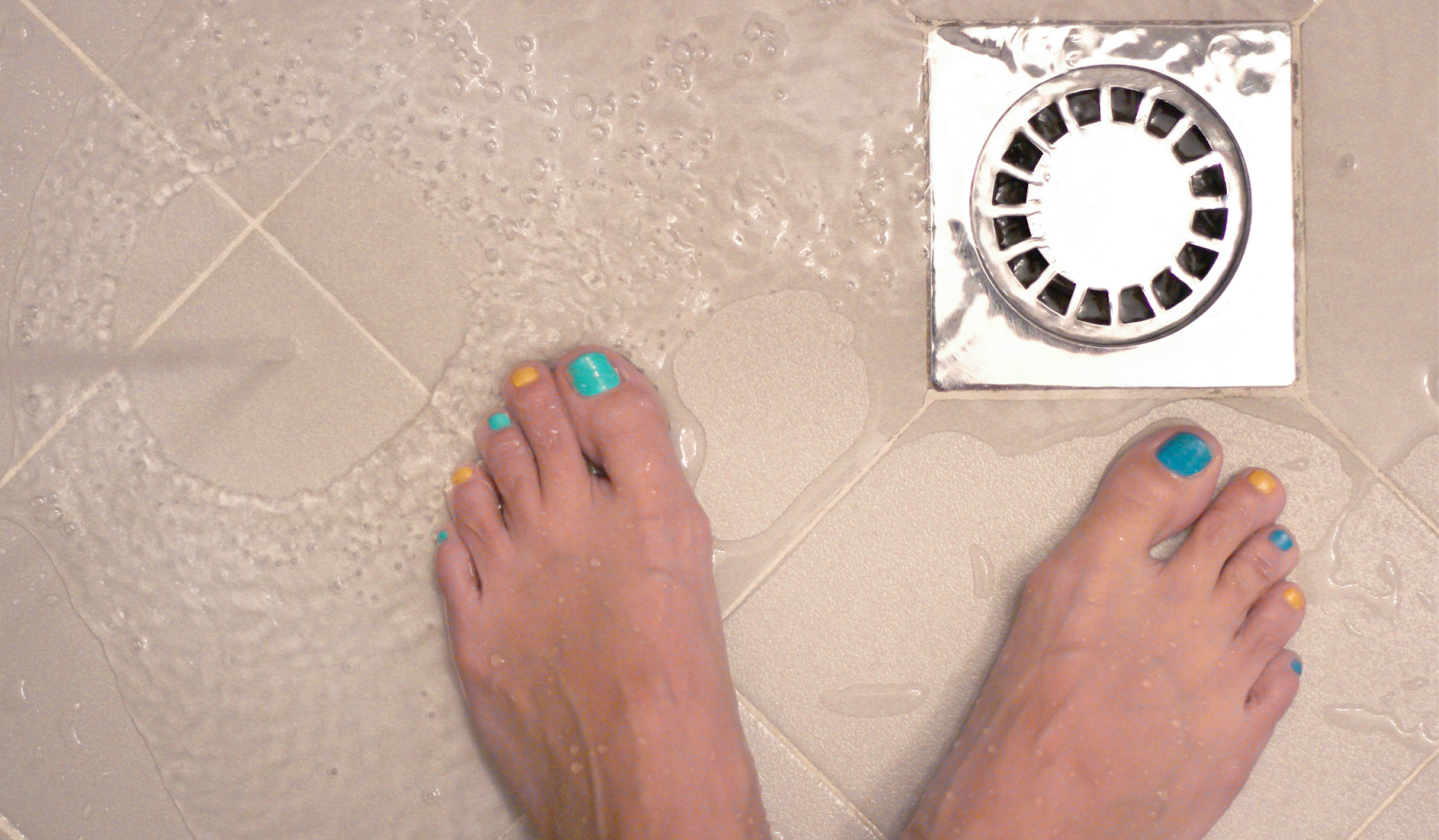Imagine this: you’re enjoying a relaxing shower after a long day, but you notice the water pooling around your feet, draining slower than usual. It’s easy to dismiss this as a minor inconvenience, something to deal with later. However, ignoring a slow drain can set the stage for significant plumbing disasters that could disrupt your daily life and lead to costly repairs.
The Hidden Dangers of Neglecting Slow Drains
A slow drain is often more than a trivial annoyance; it’s a warning sign of underlying issues within your plumbing system. Addressing it promptly can save you from a cascade of problems.
1. Complete Blockages: From Slow Flow to No Flow
A slow drain typically indicates a partial obstruction in your pipes. Over time, this blockage can accumulate more debris, leading to a complete clog. When water flow is entirely obstructed, it can result in backups, rendering sinks, showers, or toilets unusable and requiring emergency intervention.
2. Water Damage: The Costly Consequence
Persistent drainage issues can cause water to overflow from fixtures, seeping into floors, walls, and cabinetry. This moisture fosters mold growth and structural damage, leading to expensive repairs. The longer you ignore the issue, the greater the risk of extensive damage.
3. Health Hazards: Breeding Grounds for Bacteria and Mold
Standing water in slow drains creates an ideal environment for bacteria and mold proliferation. This can lead to unpleasant odors and pose health risks, especially for individuals with respiratory issues or allergies.
4. Escalating Repair Costs: A Small Problem Turned Big
Addressing a slow drain early is often a simple and cost-effective task. However, neglecting it can lead to more severe problems that require extensive repairs, significantly increasing maintenance expenses.
Common Culprits Behind Slow Drains
Understanding the typical causes of slow drains can aid in prevention and timely intervention:
- Hair Accumulation: In bathrooms, hair can combine with soap scum, forming clumps that slow water flow.
- Soap Scum and Grease: Soap residue and grease can build up inside pipes, narrowing the passage for water to flow freely.
- Food Debris: Kitchen sinks often suffer from food particles accumulating in pipes, especially without proper disposal methods.
- Mineral Buildup: Hard water can leave mineral deposits inside pipes, gradually reducing water flow.
- Foreign Objects: Small items like jewelry or children’s toys can accidentally enter drains, causing obstructions.
Preventive Measures
Preventing slow drains involves regular maintenance and mindful usage:
- Use Drain Guards: Install strainers over drains to catch hair and food particles, preventing them from entering pipes.
- Proper Disposal: Avoid pouring grease or coffee grounds down the sink; dispose of them in the trash instead.
- Regular Cleaning: Periodically clean drains with a mixture of baking soda and vinegar to break down buildup.
- Professional Inspections: Schedule routine plumbing inspections to detect and address potential issues early.
On Point Plumber: Your Partner in Preventive Maintenance
At On Point Plumber, we understand that proactive maintenance is key to a healthy plumbing system. Our comprehensive services are designed to keep your home’s plumbing in optimal condition:
- Drain Cleaning Services: Our experts provide thorough cleaning to prevent clogs and backups, ensuring smooth drainage.
- Leak Detection and Repair: Utilizing advanced technology, we identify and address leaks before they escalate into major problems.
- Water Heater Maintenance: Regular maintenance and timely repairs of water heaters to ensure consistent performance.
- Water Purification Solutions: Installation of water filtration systems to provide your household with clean and safe water.
When to Call in the Professionals
While minor clogs can often be resolved with DIY methods, certain situations warrant professional intervention:
- Multiple Slow Drains: This could indicate a blockage in the main sewer line.
- Recurring Issues: If drains continue to clog despite regular cleaning, there may be an underlying problem.
- Unpleasant Odors: Persistent smells suggest bacterial growth or sewer line issues.
- Water Backups: Water returning from drains signifies severe blockages needing immediate attention.
Takeaways
Ignoring a slow drain might seem harmless, but it can lead to major plumbing disasters, including complete blockages, water damage, and costly repairs. Standing water can become a breeding ground for bacteria, while persistent pressure on pipes may cause leaks or even bursts. Preventive measures like regular drain cleaning, using strainers, and avoiding grease buildup can help maintain smooth water flow. However, if you notice recurring slow drains, foul odors, or multiple blockages, it’s time to call a professional. On Point Plumber offers expert drain cleaning and plumbing services to keep your home’s plumbing in top shape—saving you time, money, and stress in the long run.
Frequently Asked Questions
What causes a slow drain?
A slow drain is usually caused by hair, soap scum, grease, food debris, or mineral buildup restricting water flow in the pipes.
Can a slow drain lead to bigger plumbing issues?
Yes, ignoring a slow drain can lead to complete blockages, pipe damage, water leaks, and even costly water damage repairs.
How can I prevent slow drains in my home?
Regular drain cleaning, using drain guards, and avoiding grease or food disposal in sinks can help prevent clogs.
When is the right time to contact a plumber for a slow drain?
If you have multiple slow drains, recurring clogs, bad odors, or water backing up, it’s best to call a professional plumber.
Does On Point Plumber offer drain cleaning services?
Yes! On Point Plumber provides expert drain cleaning and plumbing solutions to keep your drains flowing smoothly.

